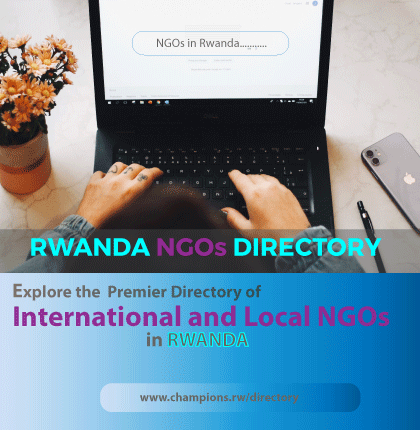Rwanda Boosts School Feeding Budget as One-Third of Population Enrolled in Schools
Rwanda has increased funding for its nationwide school feeding program, reinforcing a policy that provides meals to (…)

Rwanda Coding Academy (RCA) has announced plans to open new branches across the country to support the government’s vision of positioning Rwanda as a leading technology hub in Africa.
The announcement was made by RCA Director General Dr. Papias Niyigena during the RCA Hackathon, a competition where students develop tech-based projects aimed at solving real-world community problems.
Niyigena said RCA graduates are producing innovative projects capable of addressing challenges both in Rwanda and globally. However, he noted that the academy currently enrolls far fewer students than what is needed to meet growing demand in the labor market.
“For the next intake, we will only admit 80 students, which is not enough,” he said. “We plan to expand soon and open new campuses to increase student numbers. We need to reach a higher level.”
Since opening in 2019, RCA has gained a reputation for nurturing young Rwandans with exceptional skills in coding and problem-solving. Niyigena said he has witnessed remarkable progress among students over the past five years, underscoring the need to support their ambitions with better facilities and mentorship.
During the recent RCA Hackathon, 20 teams of students competed with projects showcasing strong technical and creative skills. The winning team, “Smarten,” developed a digital solution designed to help water companies detect and reduce losses caused by leaking pipelines.
The system instantly alerts relevant authorities when a pipe bursts, pinpointing the exact location of the leak for quick repair.
Kirenga Kenny, leader of the “Smarten” team, said the innovation aims to help institutions such as the Rwanda Water and Sanitation Corporation (WASAC) prevent major losses from undetected water leaks.
“When a pipe bursts, our system immediately notifies the company and identifies the affected area,” Kirenga said. “This project can help Rwanda save millions of liters of water that would otherwise go to waste.”
He added that the technology can also benefit individual households, as it can be connected to home water systems and controlled remotely through a mobile phone.
Eng. Paul Umukunzi, Director General of the Rwanda TVET Board, urged government institutions and private companies to support student innovations from RCA and other ICT-focused schools. He said their solutions could play a key role in tackling Rwanda’s development challenges.
RCA was established to equip secondary school graduates with advanced computer programming and engineering skills, reducing reliance on foreign expertise.
The academy offers a three-year program in software engineering, cybersecurity, and embedded systems. Since its inception, RCA has graduated 117 students, and more than 110 are expected to complete their studies in the 2024–2025 academic year.
Rwanda has increased funding for its nationwide school feeding program, reinforcing a policy that provides meals to (…)
Rwanda has launched a $300 million initiative to expand Volcanoes National Park and protect surrounding communities (…)
Atlantic Microfinance for Africa (AMIFA), a subsidiary of Morocco’s Groupe Banque Centrale Populaire (Groupe BCP) (…)
Foreign investment in Rwanda has surged over the past five years, nearly tripling from $390.3 million in 2020 to (…)

